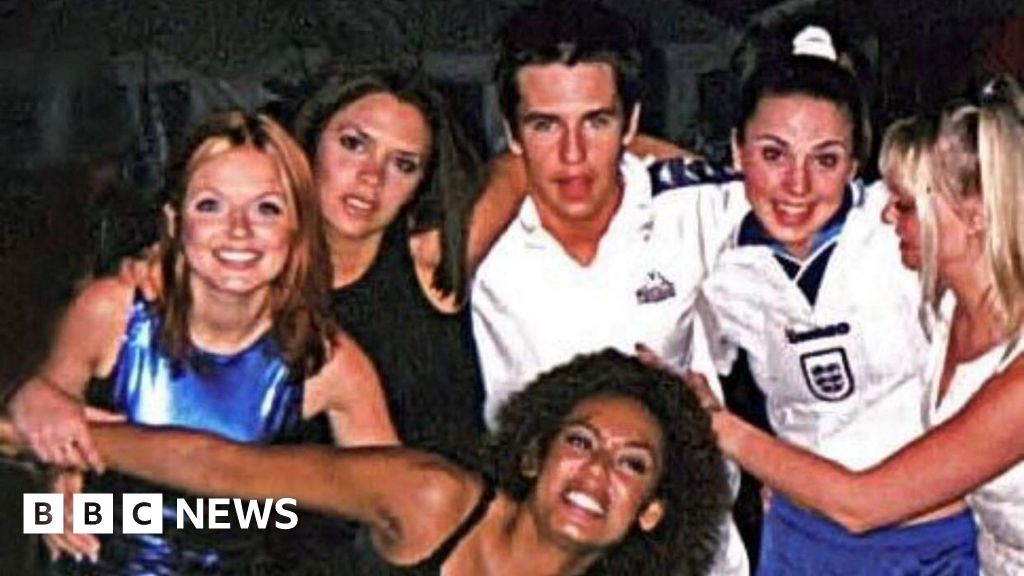News
 Anthony Kavanagh
Anthony KavanaghIn the mid-1990s, Anthony Kavanagh was charting in the Top 10 and winning Smash Hits awards.
But within a matter of years, everything had come crashing down. Dropped by his record label, addiction quickly took hold and ‘Kavana’ – as he was known – found himself “in the basement”.
Now, marking two years of sobriety, the 47-year-old has released his candid autobiography, Pop Scars, about his descent from fame to homelessness.
He told Radio Manchester: “I didn’t want the book to be a pity party – I wanted it to be a book of hope and of silver linings ultimately.”
Growing up in a council house in the inner-city Harpurhey area, he “didn’t really show off” his musical talents, but would practise songs on a piano that had been handed down by an aunt.
But discovering the Smash Hits magazine cemented his ambitions to be a pop star.
“I would buy it every two weeks and I’d just get lost in this magazine, and I just became fascinated and obsessed with wanting to be a pop singer.”
 Getty Images
Getty ImagesThe dream became reality when at the age of 18, he signed a deal with Virgin Records at the same time as the then unknown Spice Girls.
Both acts performed at the firm’s summer ball and he went on to chart success with singles I Can Make You Feel Good and Special Kind Of Something.
He was even flown out to perform for the Brunei royal family and once missed a phone call from Madonna.
“It was peak 90s. It was me and Spice Girls and all the boy bands and the Smash Hits tours. I mean what a time, it was right in the middle of that pop movement.”
But he struggled with hiding his sexuality in an image-fixated industry that saw him adorn posters in girls’ bedrooms all over the country.
“I was a chubby kid,” he says. “So it was strange to be adored like this. I didn’t really believe it, but yeah, I was in the closet.
He added he was “very inexperienced so I kind of took on this role and hid that”.
“After a while that’s going to affect you,” he added.
 Anthony Kavanagh
Anthony KavanaghAs a solo artist, he says he missed out on the camaraderie and mutual support of being in a boy band and became caught up in drink and drugs.
“I think what I now understand, looking back years later, is that there was a lot of loneliness.”
In the often cut-throat music industry, he was dropped by his record firm at the age of 21.
He describe the grip of the addictions as “slow and insidious”.
“I was chasing a feeling and that was to be wanted and liked and, I suppose, loved really.
“When you get that very fast, very quick and then it goes, I don’t think your mind knows how to cope with it.
“So I turned to something else that gave me that feeling but obviously took me down as well eventually.”
‘Write your truth’
He returned to the public eye as a contestant on The Voice UK in 2013, but didn’t get through to further stages, despite judge Sir Tom Jones telling him he had a “lovely, lovely tone”.
But at the time his addictions had a grip on him. After a stint on Celebrity Big Brother, he appeared drunk on an appearance on Loose Women.
The loss of his father and sister, and his mother’s diagnosis with Alzheimer’s, also took a heavy toll.
“I just kept having these rock bottoms after rock bottoms and I think I had to be stripped of every single thing – that means people, family, relationships – to then finally surrender.
“I’m just going: ‘You know what? I’m done’. That’s when my life started to change properly, and suddenly then I started to get this creativity back.”
He enrolled on a three-month writing course, where the instructor swept aside his anxieties.
“She gave me the self-esteem to keep going. She kept saying ‘stop this’ because I kept saying I’m not famous enough to write a book. She was like, it doesn’t matter, write your truth, write what moves you and so I did.”
He describes his book as “the first thing I’ve done in sobriety”.
“So probably I’ve not done anything since I was 16 that’s not been in some way affected by my addiction.
“So yeah, I’m slightly proud of it.”



